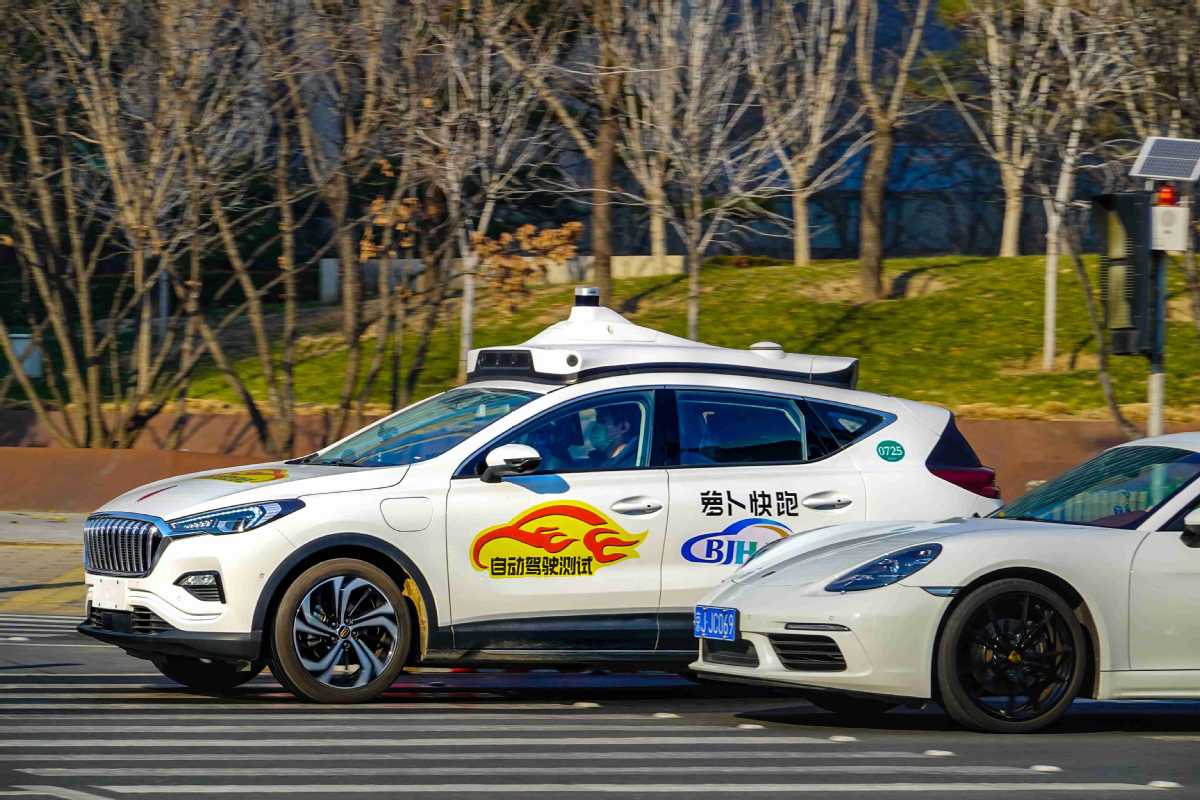Firms step up to cash in on robotaxi biz

Competition in China's autonomous driving sector is set to heat up as several self-driving companies are accelerating commercial operation of self-driving taxis to provide paid ride-hailing services in more regions, experts said.
Wei Dong, vice-president and chief safety operation officer of Baidu Intelligent Driving Business Group, said the company is concentrating on expanding its commercial robotaxi pilot services in first- and second-tier cities at an early stage, and will also try to offer such services in urban scenic areas across the nation.
So far, Baidu has begun to charge fees for autonomous ride-hailing services on open roads in Beijing, Chongqing and Yangquan, Shanxi province. Beijing residents can now pay for robotaxi services using China's digital fiat currency, or the e-CNY.
"Some developed countries are now facing labor shortages, and taxi services are expensive in Europe, the United States, Japan and elsewhere," Wei said, adding that Baidu is willing to cooperate with overseas enterprises to expand the global footprint of robotaxi services.
Apollo Go, Baidu's autonomous ride-hailing service, provided around 213,000 rides in the fourth quarter, almost doubling sequentially. However, there are some difficulties hindering the commercial operation of autonomous driving. For instance, related technologies are constantly being upgraded, and the range of services is also limited, Wei said.
As autonomous driving technology continues to mature, the industry is poised to consolidate in the coming years. According to market consultancy IHS Markit, the size of the autonomous car service market will exceed 1.3 trillion yuan ($203.5 billion) in the future, with the top-ranked service provider accounting for 40 percent of total market share.
Baidu Apollo's L4 autonomous vehicles have accumulated more than 25 million kilometers of service so far and unmanned driving tests have expanded in Beijing from Shougang Park in Shijingshan district to Yizhuang, Daxing district, the company said. L4 autonomy means the vehicle can drive by itself under most circumstances without a human backup driver.
Xu Baoqiang, who is in charge of Baidu's self-driving robocar, said driverless test data from both Yizhuang and California in the US indicate that traffic density in Beijing is about 15 times higher than that of the US. As a result, it will be more difficult for autonomous driving to be applied at scale in China.
"Many autonomous driving companies such as Baidu Apollo have accelerated robotaxi deployment as policies become more favorable in some cities. The commercialization of robotaxi service without safety drivers will require continuous public road testing and stronger regulatory support," said Lyu Jinghong, an intelligent mobility analyst at research firm BloombergNEF.
"We expect robotaxis to ramp up in the 2030s and China to have the world's largest robotaxi fleet by 2040," Lyu said, adding that countries like China and the US are expected to see higher shares of robotaxis in shared mobility services, while markets with complex road environments and ample availability of labor for human-driven shared mobility services are expected to see limited impact from self-driving technology.
Self-driving startup Pony.ai is also quickening the commercialization of driverless vehicles. The company has recently completed the first close of its Series D financing, with its valuation surging to $8.5 billion.
The proceeds from the funding will be used to further augment Pony.ai's hiring, investment in research and development, global testing of driverless taxis and trucks on an ever-growing fleet, and accelerate its efforts toward mass production and mass commercial deployment, the company said.

